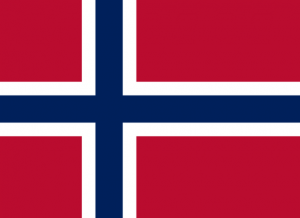Language/Norwegian-bokmal/Vocabulary/Fruits
Hi Norwegian Bokmål learners! 😊
In this lesson, we will explore the vocabulary of fruits in Norwegian Bokmål. Knowing how to name fruits in Norwegian Bokmål can be useful for traveling or shopping, especially if you are a fruit lover like me! Let's get started!
Take some time to dive into these other pages after completing this lesson: Numbers and counting & Time.
Introduction[edit | edit source]
Fruit is a universal snack and a mealtime staple. Being able to recognize fruits in Norwegian Bokmål is useful for everyday communication and can be especially helpful when visiting a Norwegian Bokmål-speaking country such as Norway. Besides, it's always fun to taste new fruits!
This lesson will introduce you to the most common fruit names in Norwegian Bokmål, along with their English translations and pronunciations. We'll also provide some cultural information and interesting facts related to fruits in Norway. At the end of the lesson, you will find a dialogue that illustrates the use of fruits vocabulary in context.
To improve your Norwegian Bokmål vocabulary, you can also use the Polyglot Club website. Find native speakers and ask them any questions!
Norwegian Bokmål Fruits Vocabulary[edit | edit source]
Here is a list of common Norwegian Bokmål fruits:
| Norwegian Bokmål | Pronunciation | English |
|---|---|---|
| eple | /ˈɛplə/ | apple |
| banan | /bɑˈnɑn/ | banana |
| appelsin | /ɑ'p:ɛlsin/ | orange |
| pære | /pɛːrə/ | pear |
| drue | /dru:/ | grape |
| fersken | /ˈfærʃən/ | peach |
| kiwi | /ˈkiːvi/ | kiwi |
| ananas | /æna'nɑs/ | pineapple |
| mango | /ˈmɑŋɡuː/ | mango |
| jordbær* | /jɔrdˌbæːr/ | strawberry |
| bringebær* | /brɪnˌgeɪbær/ | raspberry |
| blåbær* | /bloʊˌbɛr/ | blueberry |
| solbær* | /'sɔlbær/ | blackcurrant |
| kirsebær* | /'kɪʁsəbœʁ/ | cherry |
(*common berries in Norway)
Interesting Facts about Fruits in Norway[edit | edit source]
- Norway is usually known for its cold climate, but it also produces some great fruits, especially berries. Norway has a variety of berries, such as strawberries, raspberries, blueberries, blackcurrants, and cherries, which are organically grown and are full of natural flavors.
- Norway has a jam culture. Norwegians often make homemade jams with the berries they have picked themselves. Unlike other jams, Norwegian berry jams are made from 100% natural fruits, and they are often mixed with some sugar or spices.
- In Norway, there is an annual "Melon Day" that happens on August 14th. People across the country celebrate this day by sharing melons with friends and family.
- "Kvæfjordkake" or the "world's best cake" is a popular dessert in Norway. This cake is made with layers of sponge cake, meringue, whipped cream, and fresh berries, usually strawberries or raspberries. It's a must-try dessert if you visit Norway!
Dialogue[edit | edit source]
Here's a dialogue between Anna and Sarah, using fruits vocabulary:
Anna: Hei, Sara! Vil du ha et eple? (Hi, Sarah! Do you want an apple?) Sarah: Ja, takk. Jeg vil ha en pære også. (Yes, please. I also want a pear.) Anna: Hva med en banan? (What about a banana?) Sarah: Nei, takk. Jeg liker ikke bananer. (No, thank you. I don't like bananas.) Anna: Ok. Hva vil du ha? Fersken eller mango? (Okay. What do you want? Peaches or mango?) Sarah: Jeg vil ha en mango. (I want a mango.)
Conclusion[edit | edit source]
Congratulations! You now know many of the most common Norwegian Bokmål fruit words. Learning new words can be a fun and exciting way to improve your Norwegian Bokmål vocabulary. Indeed, it's essential to learn new vocabulary in context, and this is why practicing with native speakers is highly recommended. If you have any questions, please ask them in the comments section below.
➡ Feel free to edit this wiki page if you think it can be improved. 😎
Sources[edit | edit source]
Congratulations on finishing this lesson! Explore these related pages to keep learning: Months of the Year & Seasons.
Other Lessons[edit | edit source]

